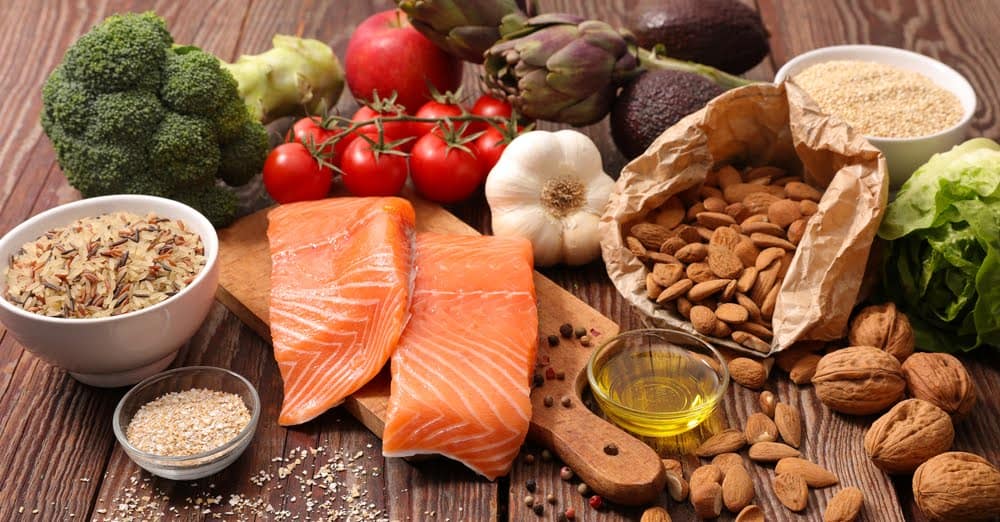What is a Keto Diet?

The ketogenic diet is a low-carb, high-fat diet that offers many health benefits and may even have positive benefits against diabetes, cancer, epilepsy and Alzheimer’s disease. Many Studies show that this type of diet can help you lose weight and improve health. The ketogenic diet (often termed keto) is a super low-carb, high-fat diet that shares many similarities with the Atkins and other low carb diets. It involves drastically reducing carbohydrate intake, and replacing it with fat.
This reduction in carbs puts your body into a metabolic state called “ketosis” which turns your body into an incredibly efficient fat burning machine. It also turns fat into ketones in the liver, which can supply energy for the brain. The entire goal of a properly executed keto diet is to force your body into ketosis through starvation of carbohydrates, not through starvation of calories. When you overload the body with fats and take away carbohydrates it will begin to burn ketones as the main energy source.
Keto Diet and Your Health
The ketogenic diet originated as a tool for treating neurological diseases in the early 1900’s. Studies have shown that the diet can have benefits for a wide variety of different health conditions.
– Heart disease: The keto diet can improve risk factors like HDL levels, body fat, blood pressure and blood sugar.
– Cholesterol. A ketogenic diet has been shown to improve triglyceride levels and cholesterol levels most associated with arterial buildup.
– Energy. By giving your body a better and more reliable energy source, you will feel more energized during the day.
– Hunger. Fat is naturally more satisfying and ends up leaving us in a satiated (“full”) state for longer.
– Alzheimer’s disease: The diet may reduce symptoms of Alzheimer’s and slow down the disease’s progression.
– Epilepsy: Research has shown that the ketogenic diet can cause reductions in seizures in epileptic children.
– Cancer: The diet is currently being used to treat several types of cancer and slow tumor growth.
– Acne: Lower insulin levels and eating less sugar and processed foods may help improve acne.
– Parkinson’s disease: One study found that the diet helped improve symptoms of Parkinson’s disease.
What do I Eat?
Before starting a keto diet you will want to plan ahead. You should have a meal plan ready to go, and prepare yourself mentally for the initial carb cravings that many people have starting out. Plan on snacking on cheese and nuts when you get hungry rather than an apple.
The food intake for a standard keto diet should be around 70% fats, 25% protein, and 5% carbohydrate. The lower the carb intake you have the faster you will get into ketosis and start melting the fat away. Normally, anywhere between 20-30g of carbohydrates are recommended for every day dieting – but the lower your carbohydrates (less than 15g per day), the faster you will enter ketosis.
The carbs you do eat should come mostly from vegetables, nuts, and dairy. Don’t eat any refined carbohydrates such as wheat (breads, pastas, cereals), starches (potatoes, beans, legumes) or fruits.
Most of your meals should be a protein with vegetables, and an extra side of fat. Steak topped with butter and a side of broccoli and cheese, Chicken breast basted in olive oil, with spinach sautéed in olive oil.
If you’re finding yourself hungry throughout the day, you can snack on celery and guacamole, nuts, seeds, cheeses, or peanut butter to curb your appetite. The good news is once you get into ketosis you likely find that you are not as hungry and start to snack less.
What to Expect
If you are on a normal diet, your body is used to breaking down carbohydrates and using them as energy and over time the body has built up an enormous amount of enzymes ready designed to process carbs.
Alternatively your body only has a few enzymes for processing fats – mostly to store them. When you switch your eating habits all of a sudden your body has to deal with the lack of glucose and increase in fats, which means building up a new supply of enzymes designed to process the healthy fats.
As your body begins to move into ketosis it will naturally use what’s left of your glucose first. This means your body will be depleted of all glycogen in the muscles, which can cause a lack of energy, and a general lethargy. In the first few weeks, some people report:
– Headaches
– Feeling tired
– Flu-like symptoms (known as the “keto-flu”)
This is the result of electrolytes being flushed out of your body (getting rid of the bad) as ketosis has a diuretic effect so make sure you drink plenty of water and keep your sodium intake up. In fact, you should salt everything!
For the average person starting a ketogenic diet who eats 25-40g of net carbs a day the process will take about 2 weeks to get your body into ketosis. To jumpstart your journey cut your carbs to fewer than 15g to make sure that you are well on your way into ketosis within 1 week. (A net carb is the total amount of carbohydrates in a food minus the total amount of fiber.)
Summing it all up
People often ask if it’s necessary to track calories for the day, and in my opinion it is not although it will certainly help some people. You definitely need to be completely aware of every carb you take in, from a good or bad source. As long as you “know’ the foods you’re eating are on the allowed list, you WILL lose weight.
Going “Keto” is not a diet – it’s a lifestyle change. Eating a high amount of fat, moderate protein, and low amount of carbohydrates will have a huge impact on your health by lowering your cholesterol, body weight, blood sugar, and raising your energy and mood levels.
